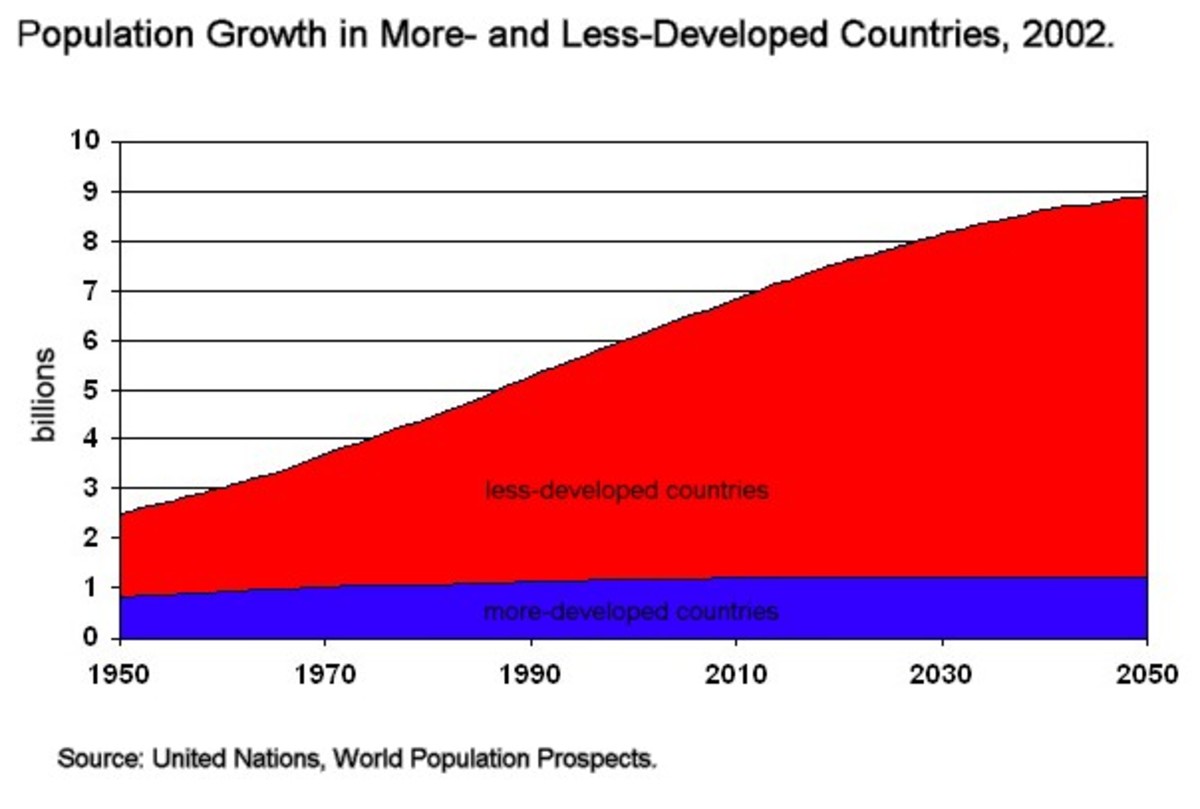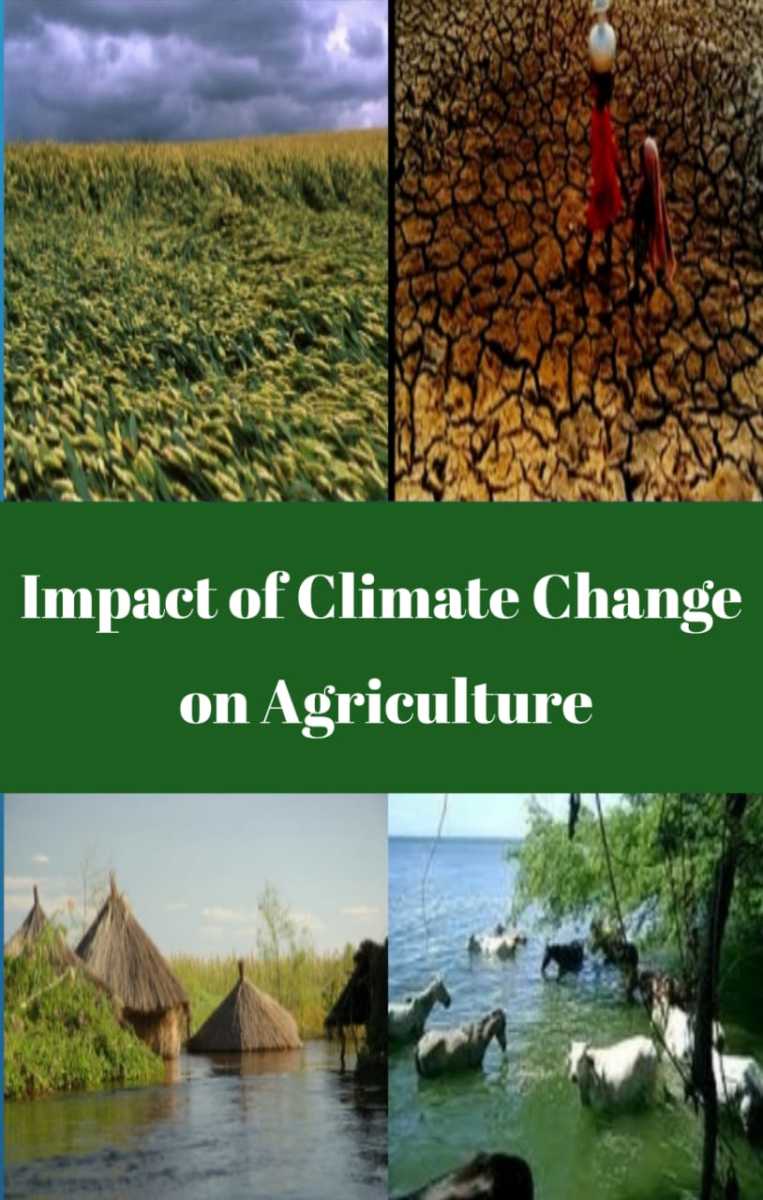GM foods - a necessary change or dangerous tampering?
Genetically Modified food has been the topic of debate in the popular media for a number of years. The year 1983 saw the first genetically modified plant, with the first foods being approved for consumption in the nineties. From this very early stage GM has been met with fevered opposition.
A necessary change?
The world is currently going through a population explosion. The time elapsed between reaching the next billion is dropping with every billion. It took us 123 years to reach from 1 billion to 2 billion while it took only 12 years to reach from 6 to 7 billion. This rapid increase in population places huge strains on our food production. Farming takes up vast amounts of land, which is also desperately needed for housing, building factories and other infrastructures. We are also unable to expand into forests (deforestation) and grasslands as we would destroy the local ecosystem driving species to extinction and contribute to the greenhouse effect. For these reasons we need to produce greater yield from a lesser area and this is where GM comes in. With GM technology, we can produce plants which are larger and more resistant to disease and pests. This increases productivity greatly and so less land is needed for farming for same or more food production. With GM technology, crops can be grown in ever more hostile conditions without compromising the quality. This allows us to use land which was simply not fertile enough to support farming. The main impact of GM will be felt in LEDC’s(Less Economically Developed Countries) and NIC’s (Newly Industrialised Countries) where there is a food shortage. Countries such as Sudan which have had severe droughts would benefit greatly with more resistant crops. In MEDC (More Economically Developed Countries) countries, the main advantage is the reduction in cost of food.
There are other benefits, like being able to improve the produce. In countries such as India where rice is the staple food, many children and adults suffer from blindness due to a lack of vitamin A in their diet. To solve this problem, beta-carotene (Vitamin A) is taken from daffodils and implanted into rice so that people do not have vitamin A deficiencies. GM crops offer us healthier foods as many previously non-nutritious foods can now be incorporated with vital vitamins and minerals. The use of genetically modified crops can also mean a decrease in the use of pesticides and insecticides. Papaya for example has been modified to resist the ringspot virus by GM technology. Currently 80% of Hawaii’s papaya industry is GM, there has been no other successful way found of stopping the ringspot virus.
Bigger, more nutritious plants which can be grown in harsher conditions sound like the perfect solution to our food problems. However there are many who are in opposition with very valid arguments. Numerous critics argue that it is dangerous for us to meddle with nature. Genetic alteration has been occurring in human civilisation since the time of the Egyptians. The crops that produce the best taste and the largest yield are bred together to only allow the best plants to survive and so remove the weaker plants. With GM, the same process is being done but on a deeper way. Advantageous characteristics from other species are used to create an even more desirable product.
Dangerous tampering?
GM breaks this natural species barrier and blends genes from other species, the effects of which are not completely known. There are concerns that GM crops which offer better weed control are destroying bio-diversity. A study (over 10 years) which looked at the correlation between the monarch butterfly in Mexico and the milkweed (only food source of this butterfly) population showed a clear trend of declining number of butterflies with milkweed. While this does not imply causation, it is a concern. Although extensive tests are carried out on GM produce before being introduced to the consumers, the long term impact upon the human body cannot be known. Although there have been many claims of adverse effects, there has been no evidence to support this.
It has also been argued that the produce become cheaper for the consumer to purchase due to increased yield but the advantage to the farmer is either minimal or non-existent. This claim has mainly been made because of the expensive seeds that are needed for GM crops. GM crops have specifically been made so that they cannot reproduce as they may cross fertilise with other plants in the wild and the effects of which cannot be predicted. So every year the farmer must pay for new seeds which will eat severely into profits.
Greenpeace and the European Green party have also made allegations that GM is the cause of the worldwide increase in food allergies. In November 2005, a pest resistant pea which caused an allergic reaction in field mice. This led to these groups claiming GM is the “trigger food”. Currently there is no evidence to suggest that GM has any adverse effect on human beings.
Some groups want the total abolition of GM, however there is a growing populace which demand strict labelling laws to be enforced. The underlying thought being “consumers have the right to know what is in their food”. Currently 21 countries in the European Union have brought mandatory labelling into force. Opposition to labelling mainly comes from the cost increase of the food due to labelling and regulation of the labelling.
There are both positives and negatives to GM foods; however I personally feel that GM food is the way forward. It produces greater yield, the crops are more resistant to pests and extreme weather and they are more nutritious. Although there are many critics of GM crops, there is no conclusive evidence whatsoever to suggest that they create adverse effects or are harmful to humans. This combined with the fact that millions are dying in the developing world and the rapid increase in demand for food means that we currently have no other alternative. Countries are increasingly opening their markets to GM food as confidence grows with time and research. The more data we collect, the more confident we can be about their safety.



![Obama's General Motors [GM] Tarp Bailout - The Untold Details Obama's General Motors [GM] Tarp Bailout - The Untold Details](https://images.saymedia-content.com/.image/t_share/MTc0MTU0NDA1OTcxNzY1MTE2/obama-general-motors-gm-tarp-bailout-untold-details.jpg)




